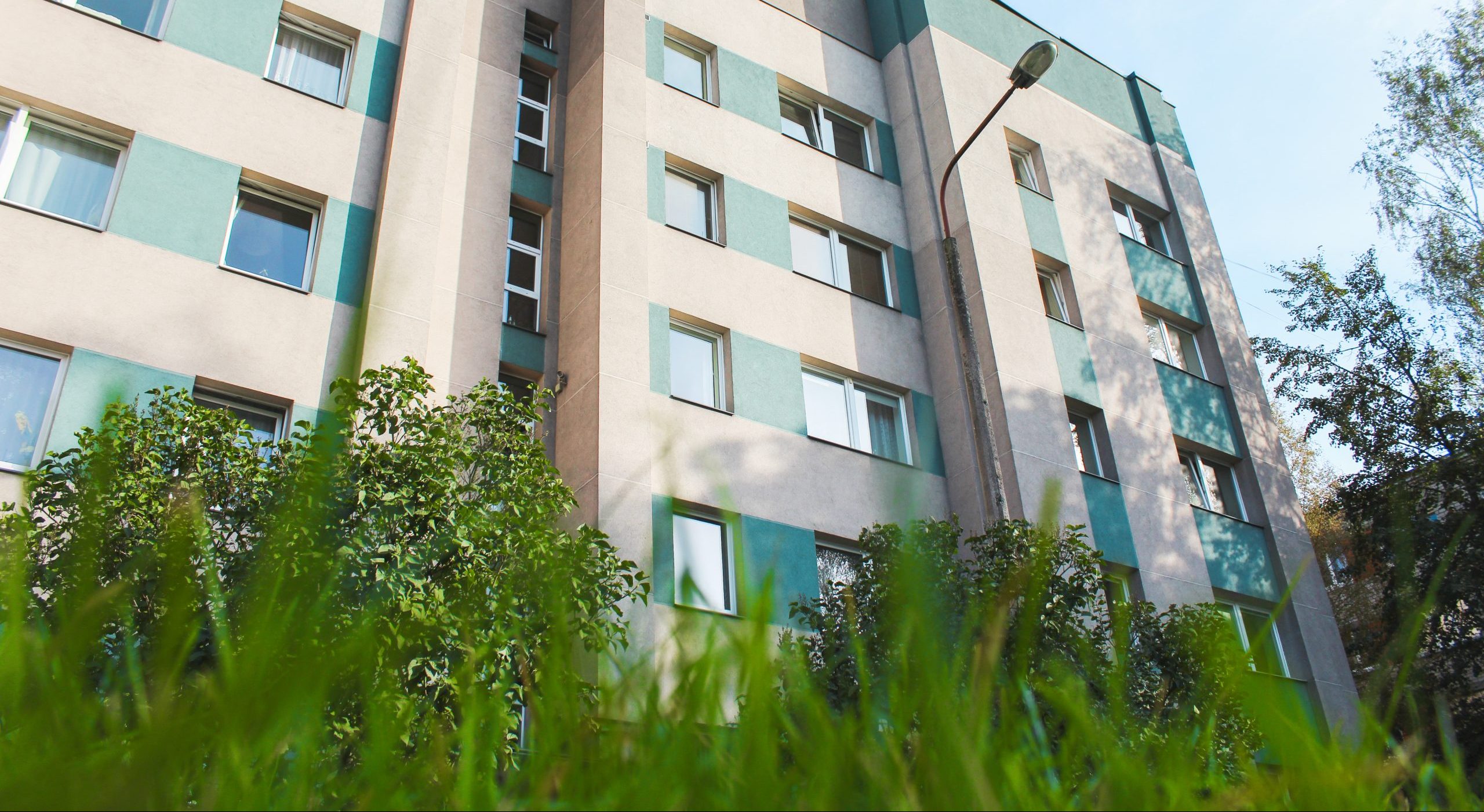Why is building renovation so important right now? The most obvious answer is the impact that buildings have on the environment.
Buildings account for nearly 40% of energy consumption and 36% of CO2 emissions in the EU. If we renovate our buildings, we are actively reducing the carbon emissions on a daily basis. This will be paramount if the EU is to reach its ambition to reduce the greenhouse gas emissions in comparison to 1990 by 50-55% by 2030 and to be the first climate-neutral continent by 2050.
It is an overwhelming problem that will require more than just public money to fix. In a recent study by the VK, 51, or 62% of 82 apartment buildings (736 apartments), chosen at random for inspection were found to be unsafe. For example, in Riga, Latvia alone, a majority of residential buildings (over 6,000) are in need of urgent renovation. Therefore, on October 7, the City of Riga, in collaboration with PROSPECT, Ekubirojs (“ESEB”) and Funding for FutureB.V. (“F3”) hosted a workshop focused on Innovative financing mechanism for building renovation in the Baltic States: Experiences, Insights and Lessons Learned for a way forward together. The aim of the event was to introduce stakeholders to a new financing scheme for long term DEEP renovation of buildings, or the Building Energy Efficiency Facility (“BEEF”), as well as share experiences, lessons learned and possible next steps.
With a standout crowd, the workshop consisted of two parts: First, at the Riga City Council, the workshop brought together international experts from European Bank for Reconstruction and Development (EBRD), European Investment Bank (EIB), and Funding for Future to discuss innovative financing of deep retrofitting building renovation, in particular, the Building Energy Efficiency Facility (BEEF) methodology. The most important findings from the participants:
- EBRD’s Head of Baltics Office, Ian Brown, mentioned that owners of existing buildings often lack resources to initiate, plan and finance deep retrofits and the need for innovative financing is essential to stimulate the market.
- Asen Charliyski from F3 provided a detailed overview of the BEEF investment scheme, highlighting the fact that it captures the full life cycle of buildings and most importantly is tailored towards the final beneficiary i.e. residents. The scheme provides financing for owners through funding of Energy Performance Contracts (EPC+) over 20-30 years, which guarantees long term Safety, Health and Comfort”™ for owners.
- Participants from Service providers RENESCO and Pro Dev explained the opportunities, but lamented the persistent limitations while sharing the lessons learned from the building renovation process in Latvia.
- The CEO of Altum development bank, Reinis Bērziņš, provided an overview of the bank’s support in building renovation in Latvia and its commitment to finance LABEEF.
- Marco Francini, Head of EIB Baltics States, also reiterated EIB’s support for investing in building energy efficiency in the region.
- To conclude, Ekubirojs introduced the SUNShINE platform, an integral part of the BEEF scheme, which ensures stakeholder alignment throughout the whole process of building renovation.
In the second part of the seminar, participants visited Mastu Street 8in Riga, a building, which was renovated by RENESCO and financed by LABEEF.
City Council member, Jānis Ozols, visited the building and is convinced that this is a model to support. With this tangible result of building renovation, participants gained a broad insight into the benefits of financing DEEP building renovation through an investment scheme.
From the diversity of stakeholders attending the Prospect Workshop, it is clear that building renovation, if done correctly, can impact European citizens’ daily lives. Economically, building renovation stimulates our economy and creates jobs. The construction sector accounts for 9% of Europe’s GDP and 18 million jobs. For example, each €1million investment in building stock upgrades may create 18 jobs. At the same time, just Improving ventilation in European schools could increase European GDP of more than €250 billion in the next 40 years, while eradicating mold and dampness in all European homes could lead to an economic gain of €55 billion for the European economy by 2060. It is projected that the cost to make the housing standards acceptable would be repaid in 18 months.
Socially, most of our lives are spent inside buildings. These buildings shape our sense of place and self. We are inspired by the places around us, making us work better, feel better and live better. Our surroundings can be a determinant to our health, life and overall wellbeing. It is hard to overestimate how many social indicators can be improved through renovation. Firstly, they have a direct influence on our health. For example, dampness and mold affects the whole immune system. Inhaling mold fragments or spores can inflame the respiratory airways, reducing lung’s functioning and ultimately, leading to chronic respiratory diseases such as asthma. Unhealthy housing costs the EU economy approximately €194 billion annually in the form of costs of healthcare, reduced opportunities, social services and productivity loss. Healthy homes contribute to our resilience, happiness, levels of life satisfaction, and a feeling of belonging and sense of purpose.
Deep building renovation, therefore, is more than just about energy efficiency, but an important next step to stimulating the economy, combating climate change and building social cohesion. Unfortunately, only between 0.4- 1.2% of buildings in the EU are renovated each year. To be effective, building renovation must be sustainable- ensuring environmental, social and economic benefits for all stakeholders involved. With the Prospect Workshop, we hope that participants now have another perspective of the buildings we live in and realize the potential for change that would be felt throughout Europe if building renovation was prioritized. Get in touch with us to learn more about “Guaranteed Safety, Health and Comfort” financed from Energy savings .


